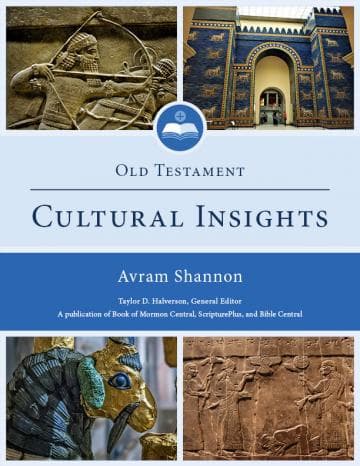Book
71 Chapters

The tribe of Naphtali is a tribe of Israel, claiming descent from Jacob through Bilhah, Jacob’s wife and the slave of Rachel. Naphtali is not a prominent tribe in the Old Testament, and there are few famous Old Testament characters who are descended from Naphtali. The chief architect of Solomon’s temple, Hiram, descended from Naphtali on his mother’s side (see 1 Kings 7:14). In addition, in the apocryphal book of Tobit, Tobit and his son, Tobias, come from the tribe of Naphtali (Tobit 1:1–5).
According to Judges 1:33, the tribe did not drive out the Canaanite inhabitants of the land. Naphtali was a core part of the coalition that Deborah and Barak put together to fight Sisera in Judges 4:4–10. Their inheritance was in the northern part of the Holy Land, especially around the Sea of Galilee. Although the King James Version translation of Moses’s blessing of Naphtali suggests that they would inherit “the west and the south” (Deuteronomy 33:23), this is usually understood to mean the south of the Sea of Galilee, as the word translated as “west” can also mean “sea.” For example, the New International Version translates this as “he will inherit southward to the lake.” Because their tribal inheritance was in roughly the same region, Naphtali is often associated with the tribe of Zebulon.
According to post-biblical Jewish interpretive tradition, each tribe was assigned a stone in the high priest’s breastplate, along with a flag color and a symbol on that flag. The stone for the tribe of Naphtali is amethyst. The flag color is “like clarified wine of a not very deep red.”[1] On the flag was an image of a hind, an archaic word for female red deer. This is a reference to the blessing of Naphtali by Jacob, in which Naphtali is described as “a hind let loose” (Genesis 49:21).
Genesis 30:7–8
Genesis 46:21
Genesis 49:21
Exodus 1:4
Numbers 1:42–43
Deuteronomy 33:23
Deuteronomy 34:1–2
Joshua 19:32–39
Judges 1:33
Judges 4:10
Judges 5:18
Judges 7:23
1 Kings 7:14
Isaiah 9:1
Ezekiel 48:34
[1] Numbers Rabbah 2:7, in Judah J. Slotki, Numbers Rabbah I (London, England: Soncino Press, 1939), 30.
Book
71 Chapters
Items in the BMC Archive are made publicly available for non-commercial, private use. Inclusion within the BMC Archive does not imply endorsement. Items do not represent the official views of The Church of Jesus Christ of Latter-day Saints or of Book of Mormon Central.